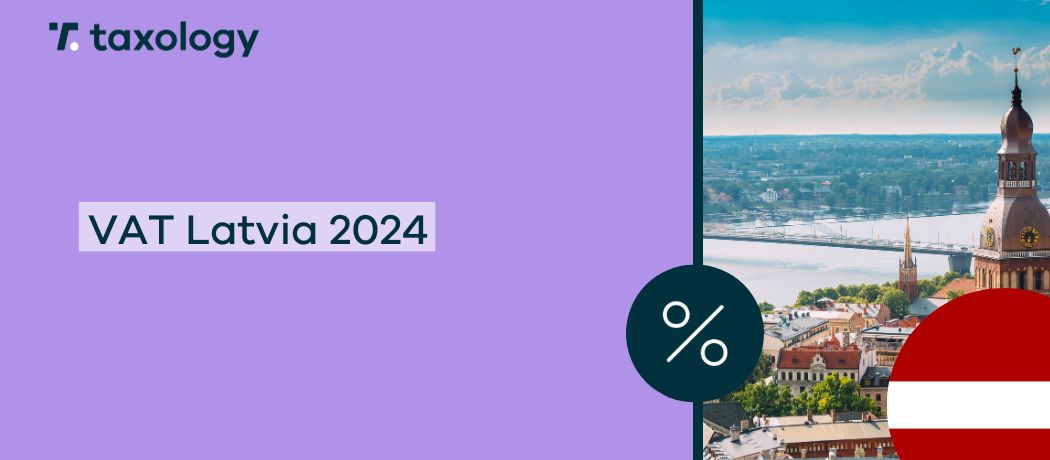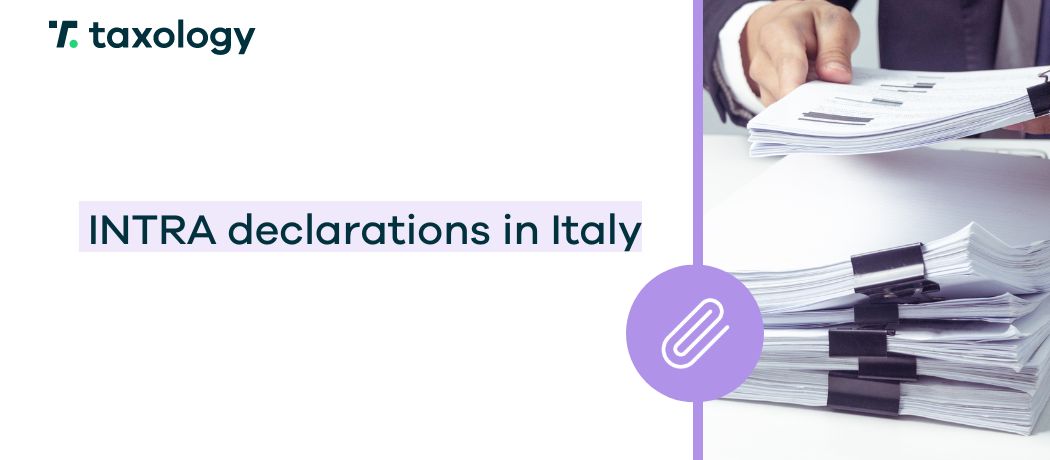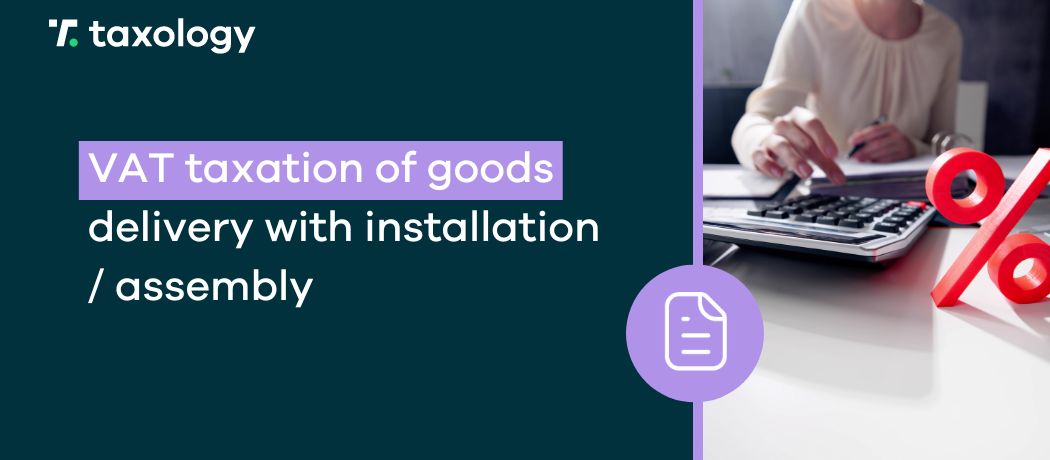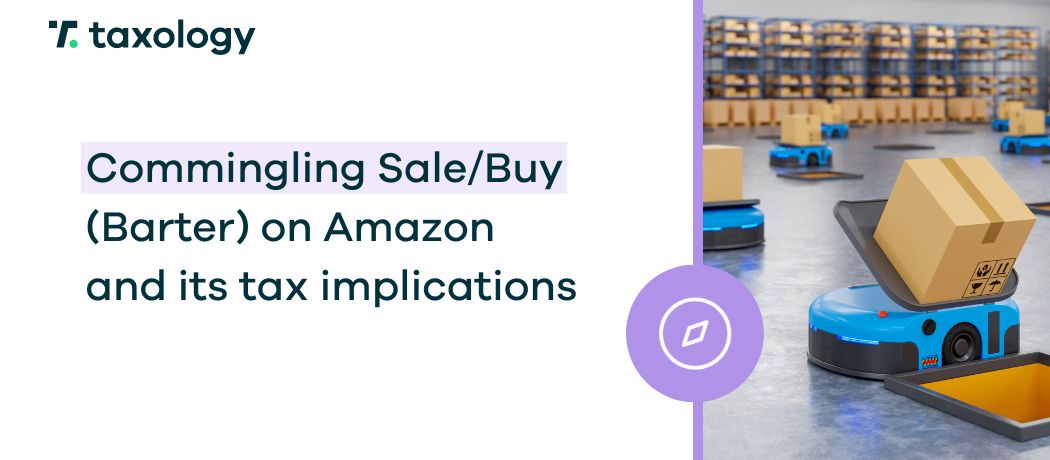Italy ranks as the fourth largest e-commerce market in Europe in terms of value. It is no surprise, then, that it attracts entrepreneurs looking to expand in this direction. However, […]
Read in: 4 minVAT Latvia 2024
- Last update: 23.02.2024
- Published: 04.08.2023
- Read in: 5 min
In the context of cross-border trade involving goods and services within EU member states, VAT is a critical factor that cannot be overlooked. These transactions require a careful examination of the categories of taxable goods, the applicable VAT rates, and the subsequent VAT settlement process. Wondering how this process operates in Latvia? You’ll find all the details you need in the article below!
From the following article you will find out:
- What are the applicable VAT rates in Latvia?
- Who is required to register for VAT in Latvia?
- Where can you register for VAT in Latvia?
- What is the deadline for submitting VAT returns in Latvia?
- What are the Intrastat thresholds in Latvia?
VAT rates in Latvia
Latvia employs a VAT system with four different rates. The standard rate, at 21%, is applicable to all goods and services that do not fall under the reduced rates of 12%, 5%, or 0%.
12% VAT rate in Latvia
The first reduced VAT rate in Latvia stands at 12%, and it applies to a range of goods and services, such as:
- pharmaceutical products
- medical products for the disabled
- newspapers, magazines, and books (excluding e-books)
- baby food
- hotel services
- city heating services
5% VAT rate in Latvia
Latvia’s second reduced VAT rate, set at 5%, applies to domestically grown food items, specifically fruits and vegetables.
0% VAT rate in Latvia
The most favourable of Latvia’s VAT rates, standing at 0%, is applicable to both intra-Community and international transportation services.
When does the obligation to register for VAT in Latvia arise?
Foreign businesses must register for VAT in Latvia under circumstances analogous to those in other European Union member states. These situations include:
- importing and exporting goods to and from Latvia, especially concerning transactions with third countries outside the EU,
- engaging in the buying and selling of goods within Latvia,
- selling goods and services from Latvia to private customers in other EU countries,
- warehousing goods within Latvia.
It’s essential to note that if any entrepreneur selling to consumers in other EU member states exceeds the €10,000 limit for intra-community distance sales of goods, they are obligated to register and handle VAT settlements in the buyer’s country. Alternatively, they can opt for the dedicated VAT OSS procedure. Importantly, this requirement does not apply to the storage of goods.
Furthermore, it’s worth highlighting that entrepreneurs from non-European Union countries will require the assistance of a tax representative to oversee their VAT registration in Latvia.

Need help with VAT?
Contact us and let us know what you need support with, and we will take care of the rest! Regardless of whether it is registration, settlement, VAT OSS or VAT EU.
Schedule a consultationHow does the VAT registration process look like in Latvia?
In Latvia, VAT registration can be done:
- online, using the service of the local tax authority, the State Revenue Service (SRS),
- by sending electronically signed documents via email to vid@vid.gov.lv,
- in person at any SRS customer service branch,
- at any regional Register of Enterprise office.
Documents required for VAT registration
The key document required for VAT registration in Latvia is an application, which can be downloaded from the SRS website. In addition to this, entrepreneurs must provide various documents, including:
- a copy of the company’s articles of association,
- confirmation of registration in the Commercial Register,
- evidence of conducting business activities within the territory of Latvia.
Upon successful VAT registration in Latvia, a local VAT number is assigned, comprising the prefix “LV” followed by 11 digits.
VAT declarations Latvia
In Latvia, VAT returns are to be filed by the 20th of the month following the respective accounting period, whether it’s a monthly or quarterly period. New VAT registrants in Latvia are required to submit monthly VAT returns for a minimum of six months.
On the other hand, the annual VAT return must be submitted by the 1st of May in the year following the applicable accounting period.
Intrastat Latvia
In Latvia, as an EU member state, there exists a requirement for Intrastat statistical reporting regarding imported and exported goods.
This obligation comes into effect when certain thresholds are surpassed, with the threshold being set at €300,000 for imports and €200,000 for exports.
For more details on the Intrastat thresholds in 2023 in other EU countries, you can refer to our article.
Latvia VAT 2024 - summary
VAT in Latvia holds significant importance for businesses operating within the country, whether they are EU or non-EU entrepreneurs. Hence, having a comprehensive understanding of various related aspects, including VAT rates, registration criteria, submission deadlines, and Intrastat thresholds, is crucial for the correct handling of VAT in international transactions.
Most goods and services supplied to Latvian consumers are subject to the standard rate of 21%. However, there are also reduced rates of 12% and 5%, along with a zero rate.
These rates should be employed when conducting transactions with Latvian consumers, especially after the intra-community distance sales of goods limit has been exceeded.
However, successful VAT settlement for these transactions necessitates prior VAT registration. This requirement can be waived for entrepreneurs who opt for the dedicated VAT OSS procedure, enabling consolidated VAT settlement for B2C transactions with EU consumers.
If you’re already an international seller or have intentions to become one and require assistance with VAT registration, managing VAT settlements, or dealing with VAT OSS or VAT EU, simply schedule a free consultation. Let us know your specific requirements, and our team of VAT Compliance specialists will handle the rest!




